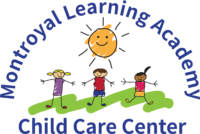Preschoolers
Preschoolers
3 years – 4 years
Our 3-year old program concentrates on building creative and artistic senses, early literacy skills, mathematical reasoning and scientific. Through participating in new hands-on activities that balance between physical and academic development and exploring different constructive learning centers daily, children learn new communicative, social and problem solving skills in our nurturing environment.
Skills that Children Will Learn
- Sharing: Encouraging children to share toys or other items with peers teaches them empathy and cooperation. At this age, they can begin to understand the concept of taking turns and waiting for their chance to play with a particular item.
- Expressing Emotions: Teaching children to identify and express their emotions helps them navigate social interactions more effectively. Encourage them to use words to describe how they’re feeling and provide support and guidance in managing their emotions appropriately.
- Taking Turns in Conversation: Help children learn the importance of listening as well as speaking during conversations. Encourage them to take turns talking and listening, teaching them the value of respectful communication and understanding in social interactions.
- Dressing Themselves: At this age, children can start learning how to put on simple clothing items like shirts, pants, and shoes. While they may need assistance with buttons and zippers, they can begin to develop independence by attempting to dress themselves.
- Feeding Themselves: By age 3, many children can use utensils to feed themselves, although they may still require some assistance and supervision. Encouraging them to try different foods and utensils helps develop their fine motor skills and independence during meal times.
- Toileting Independently: Many 3-year-olds are ready to begin toilet training. They can learn to recognize when they need to use the bathroom, communicate their needs, and begin to manage basic aspects of toileting, such as pulling down pants and using the toilet with assistance. Consistent encouragement and positive reinforcement are key during this process.
- Vocabulary Expansion: By age 3, children typically have a vocabulary of several hundred words and are continually expanding it. They can learn and use new words rapidly, so providing a rich language environment with exposure to diverse vocabulary through conversations, books, and activities is essential.
- Sentence Formation: Three-year-olds are starting to construct more complex sentences, combining words to express their thoughts and ideas. Encourage them to communicate using full sentences rather than just single words or short phrases. Model correct grammar and sentence structure in your own speech to help them learn.
- Social Communication: At this age, children begin to understand and follow simple instructions and can engage in basic conversations. Encourage them to express their needs, thoughts, and feelings verbally rather than relying solely on gestures or nonverbal communication. Practice turn-taking during conversations and provide opportunities for them to engage in group interactions with peers to further develop their social communication skills.
